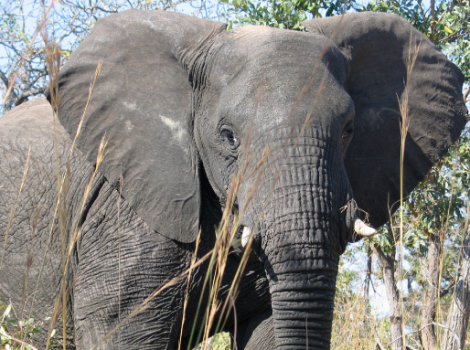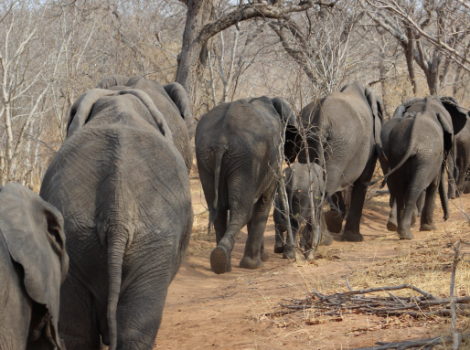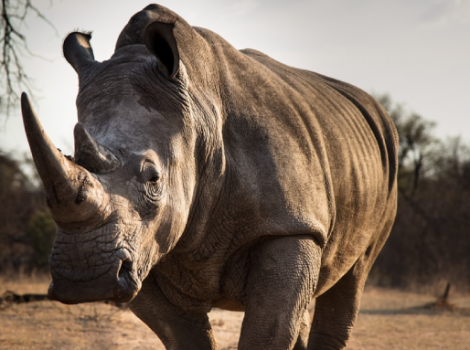
Two separate incidents in Chobe National Park decimated close to one hundred endangered white-backed vultures last year
As a response to rampant vulture poisoning in Botswana and the wider Kavango-Zambezi (KAZA) region in southern Africa, Birdlife Botswana has collaborated with three partners –BirdWatch Zambia, BirdLife International & Birdlife Zimbabwe – to tackle wildlife poisoning, which by extension, negatively affects vulture populations.
The Director of Birdlife Botswana, Motshereganyi Kootshositse, revealed in an interview that the main goal of the European Union-funded project is to reduce vulture deaths related to poisoning, which spill over into other species within the KAZA region ecosystems. He added that they have found out that some common reasons for poisoning wildlife are farmers targeting predators such as lions in retaliation for killing of their livestock. Vultures then feast on the poisoned carcass too and are harmed or die.
Another common incident is cross-border poaching in the Chobe area as poachers will kill an elephant and poison its carcass targeting vultures because of their aerial circling alerting authorities about poaching activities. He highlighted that Chobe district in northern Botswana has been selected as a pilot site as it has experienced frequent incidents of vulture poisoning in the past few months.
In August 2022, at least 50 endangered white-backed vultures were reported dead at Chobe National Park after feeding on a buffalo carcass laced with poison. In November of the same year, another 43 white-backed vultures were found dead and two alive after feeding on a zebra suspected to have been poisoned. Other selected pilots’ sites are Kafue in Zambia and Hwange in Zimbabwe.
Kootshositse further explained they have established a national and regional Wildlife Poisoning Committee. He added that the Botswana national committee has engaged various stakeholders such as Crop Productions, Agro Chemicals, Department of Veterinary Services, Department of Wildlife and National Parks and other NGOs such as Raptors Botswana to come together and find a long-lasting solution to address wildlife poisoning in Botswana.
“Let’s have a strategy or a plan together to tackle wildlife poisoning,” he stated.
He also noted there is a gap in the availability of data about vulture poisoning or wildlife in general.
“If we have a central point for data, it will help in terms of reporting and advocacy,” he stated.
Kootshositse added that the regional committee comprises law enforcement officers such as BDF and Botswana police, village leadership such as Village Development Committee and Kgosi (Chiefs).
“We need to join hands and protect the wildlife we have as this will increase our profile for conservation, and this alone enhances our visitation and boosts our local economy,” he noted.
Kootshositse said that Birdlife together with DWNP also addressed a series of meetings in some villages in the Chobe region recently. The purpose of Kgotla (communal) meetings was to raise awareness on the conservation and protection of vultures in Chobe West communities.
“After realising that vulture poisoning in the Chobe areas has become frequent, we realise that we need to do something about it. We did public awareness by addressing several Kgotla meetings in some villages in the Chobe west,” he stated.
He noted that next year they are going to have another round of consultations around the Chobe areas and the approach is to engage the community into the planning process.
“Residents should be part of the plan of actions and we are working with farmers committee in the areas to address vulture poisoning in the area,” he added
Kootshositse noted that in the last cases it was disheartening the incidents occurred three months apart. He further noted that for the first time, they found that some vultures were missing body parts. The harvesting of vulture body parts is not a common practice in Botswana, although it is used in some parts of Africa, he highlighted.
“We suspect that someone took advantage of the availability of carcasses and started harvesting their body parts.”
By Solomon Tjinyeka for Weekend Post



